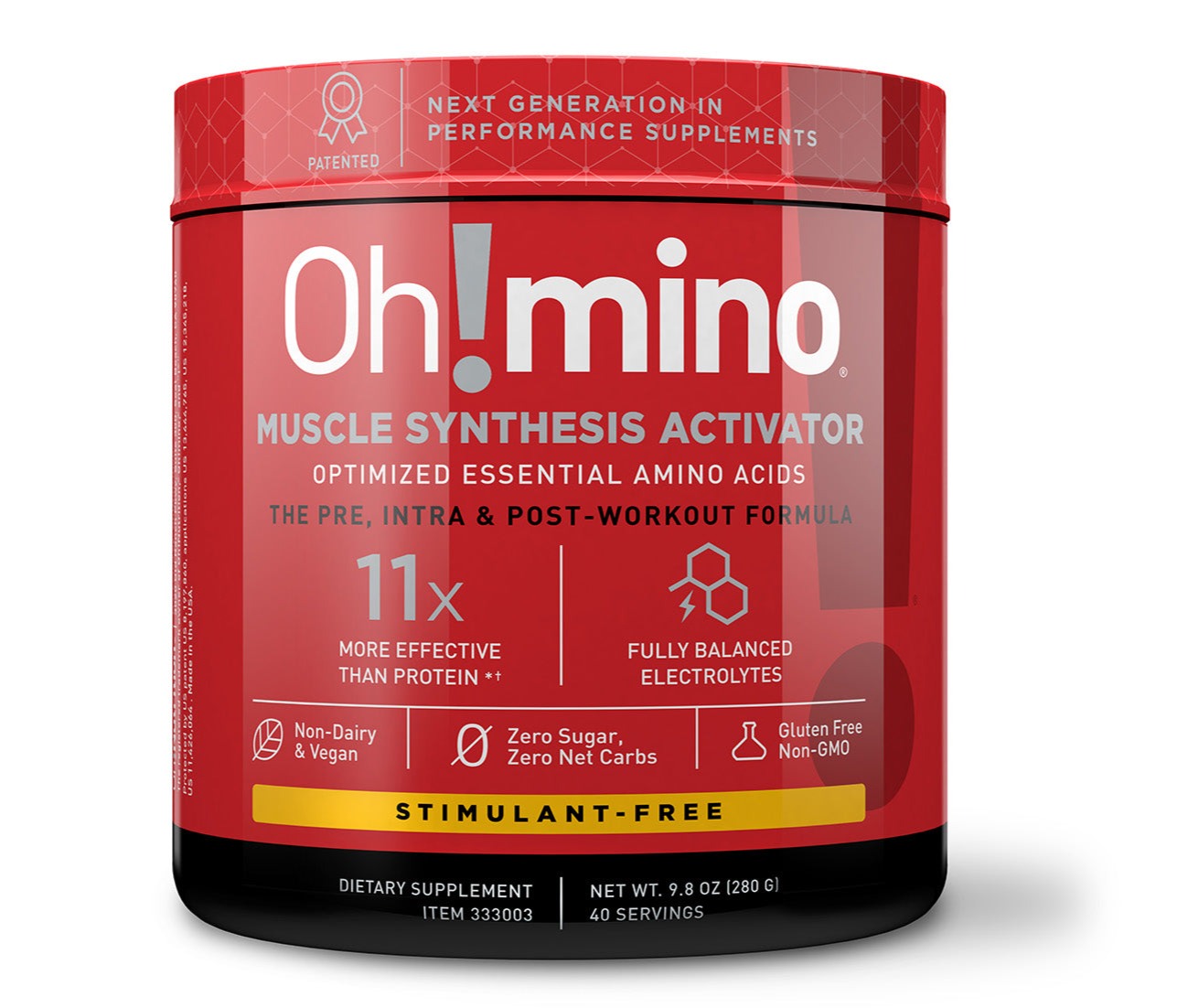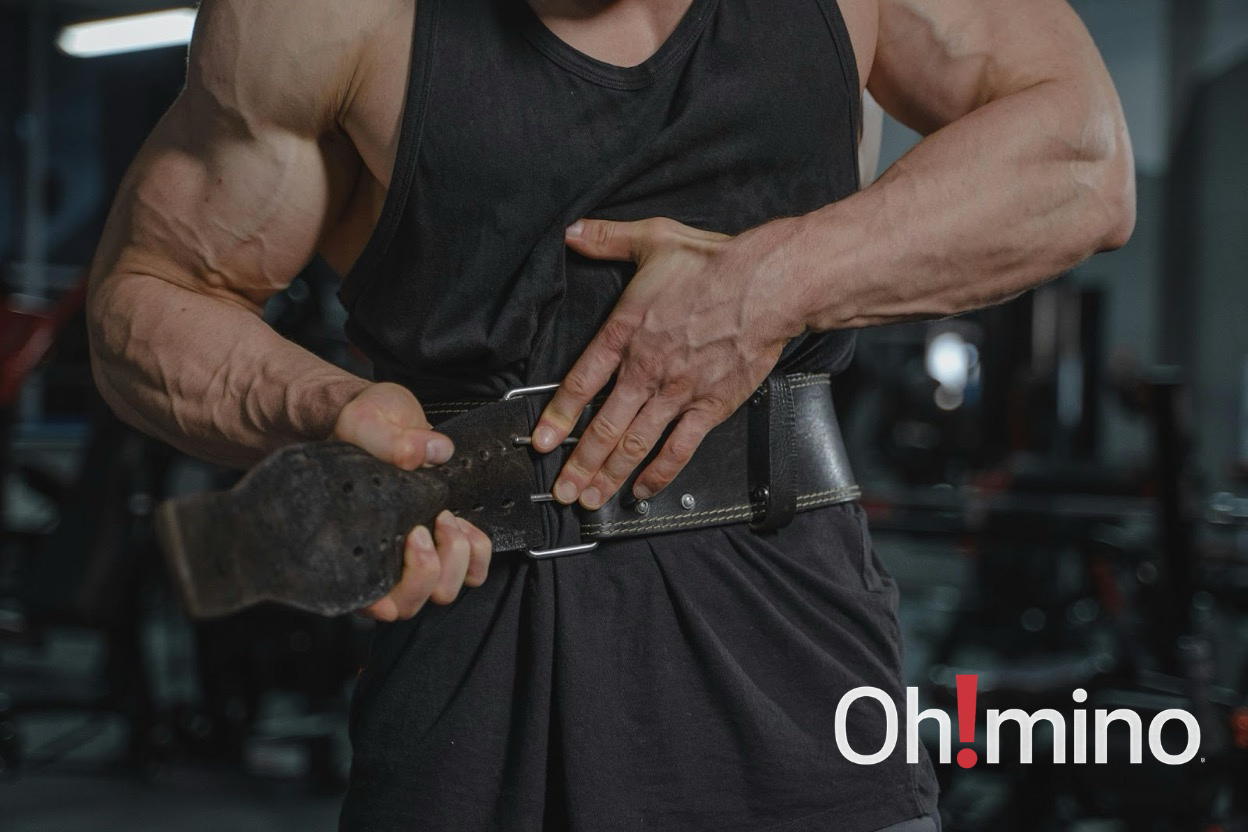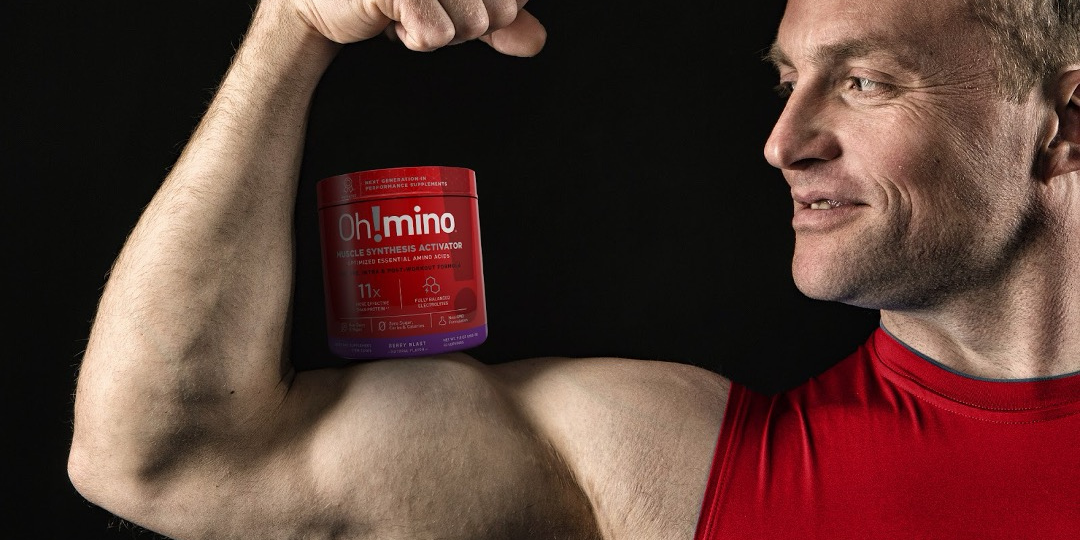Key Takeaways
-
Seniors need more high-quality protein to combat muscle loss, support healing, and stay strong, especially when appetite and calorie intake decline.
-
Whey is fast and effective, plant proteins are gentler on digestion, and collagen supports joints. Choose based on your body's needs and tolerance.
-
The best protein for older adults is one that's easy to digest, low in sugar, rich in senior-friendly nutrients, and backed by clean, transparent sourcing.
-
If powders aren’t your thing, whole-food options or EAA supplements still offer powerful ways to meet protein goals.
-
Oh!mino© Muscle Synthesis Activator provides a smarter, clinically proven EAA blend to help adults 60+ build muscle, recover faster, and stay active.
How Protein Needs Change After 60
One of the biggest age-related concerns is sarcopenia, the natural decline in muscle mass that accelerates after 60. Without enough protein, the body struggles to maintain lean muscle, making everyday activities like walking, lifting, or climbing stairs more difficult over time.
Your body's ability to recover from illness, surgery, or even a minor fall also slows with age. Protein plays a key role in tissue repair, wound healing, and immune function, so consistent intake is crucial for seniors.
Many older adults naturally eat less due to reduced appetite, difficulty chewing, or digestive issues. Protein powders offer a convenient, nutrient-dense way to meet daily needs without requiring large meals.
To help prevent sarcopenia, studies recommend that adults consume 25–30 g of high-quality protein per meal to maximize muscle protein synthesis and preserve lean mass.
|
Oh!mino©: Elevate Your Performance. Accelerate Your Recovery. Science-Backed Superiority for Every Fitness Journey Power Your Goals with Proven Results:
The Oh!mino Advantage: ✓ Patented formula that’s 11x more effective than protein, 20x more effective than BCAAs Choose Your Perfect Formula: Available in refreshing Tropical Slash or Berry Blast flavors, with stimulant-free or caffeinated options. Prefer capsules? We've got you covered with the same powerful formula. Take before, during, or after training—one solution for your entire workout. |
Protein Powder Types: Which Works Best for Seniors
1. Whey Protein
Whey is a fast-digesting, complete protein that’s rich in leucine, an amino acid especially important for muscle building. It’s one of the most studied proteins for seniors. However, those who are lactose intolerant or have sensitive digestion may not tolerate some whey products well.
A 2024 meta-analysis found that whey protein supplementation alone offers limited benefits, but when paired with resistance training, it can significantly improve lower body strength in adults over 60.
Whey, plant-based, and collagen protein powders all offer benefits, selecting the right one depends on your body’s needs and dietary preferences.
2. Vegan Options
Proteins derived from peas, rice, or hemp offer a gentle alternative for people with dairy sensitivities. Many modern plant blends now provide a complete amino acid profile and are often easier on digestion, making them a smart option for older adults with gut concerns.
3. Collagen Protein
While collagen isn’t a complete protein, it can support joint health, skin elasticity, and connective tissues in all the areas that need extra care with age. When used alongside a complete protein, it can round out your supplement routine.
How to Choose the Right Protein Supplement
1. Digestibility
As digestion slows, some seniors may have trouble breaking down proteins. Look for hydrolyzed or isolate forms of protein, which are easier to absorb. Enzyme blends added to powders can also support better digestion.
2. Added Nutrients
Many senior-focused protein supplements include beneficial extras like vitamin D, calcium, magnesium, or even probiotics. These additions can support bone density, immune health, and gut function.
3. Diabetes Considerations
Blood sugar management becomes more important with age. Choose powders with low or no added sugar and be mindful of carbohydrate content, especially if you're managing type 2 diabetes or insulin resistance.
4. Price vs. Quality
Not all expensive protein powders are better. Focus on clean labels, third-party testing, and minimal fillers. A mid-range, well-reviewed product often offers the best mix of quality and affordability.
Best Ways to Mix Protein Powder Into Your Routine
Incorporating protein powder into your day doesn’t have to be complicated. Here are simple, effective ways to make it part of your lifestyle:
-
Morning Start: Blend it into a smoothie, stir into oatmeal, or even mix with coffee for a protein-packed breakfast. A morning dose helps kickstart muscle preservation for the day ahead.
-
After Exercise: Even gentle activity benefits from post-workout protein. Enjoy a shake or snack within 30–60 minutes after exercise to support faster recovery and reduce muscle breakdown.
-
Before Bed: A slow-digesting protein or balanced amino acid blend in the evening helps fuel overnight muscle repair when your body does most of its healing and growth.
For seniors over 60, protein powders aren't just for bodybuilders, they’re a smart, accessible way to stay strong, mobile, and independent.
What If Protein Powder Doesn’t Work for You?
Not everyone over 60 finds protein powders easy to digest or enjoyable to drink. Whether it’s due to taste preferences, sensitive stomachs, or dietary restrictions, there are still effective ways to meet your protein goals without sacrificing results.
Whole-food alternatives like Greek yogurt, cottage cheese, scrambled eggs, or mashed legumes offer gentle, nutrient-dense options. For plant-based diets, soft foods like tofu, hummus, lentil soups, and quinoa are excellent vegan protein sources.
You can also look into EAA (essential amino acid) supplements, which provide the full spectrum of muscle-supporting building blocks without relying on traditional protein powder. These are especially helpful for seniors who need high-quality protein in smaller, easier-to-absorb doses.
One Powerful Alternative to Traditional Protein Powders
If you’re looking for something that is more than basic protein shakes, Oh!mino©'s Muscle Synthesis Activator delivers next-level support specifically suited for adults over 60.
Backed by science and built for performance, this patented formula includes all 9 essential amino acids in the precise ratio proven to trigger muscle protein synthesis faster and more efficiently than standard supplements.
Not all protein powders are senior-friendly. Look for zero sugar, easy mixability, and added nutrients like vitamin D and calcium.
What makes it stand out?
-
Clinically proven to stimulate 11x more muscle synthesis than whey and 20x more than BCAAs
-
Speeds up muscle recovery by 373%, ideal for aging joints and tired muscles
-
Zero sugar, zero carbs—a clean choice for those managing weight, blood sugar, or dietary restrictions
-
Vegan, gluten-free, non-GMO, and dairy-free to support sensitive digestion
-
Fortified with balanced electrolytes (magnesium, sodium, and potassium) to boost hydration and muscle function
-
Available in capsule or powder form, with stimulant-free and caffeinated options, for flexibility at any fitness level
-
Designed to work before, during, or after activity, and even on rest days for consistent support
If traditional protein powders leave you feeling bloated, sluggish, or stuck in a routine, it may be time to switch to something smarter.
Try Muscle Synthesis Activator today and fuel your body with the clean, clinical edge it deserves.
Frequently Asked Questions (FAQs)
Can seniors absorb protein as well as younger adults?
Protein absorption may decline slightly with age, but the real issue is muscle sensitivity. That’s why seniors benefit from higher-quality protein and complete EAA formulas.
Can protein powder help with weight management in seniors?
Yes. It helps maintain lean mass while supporting satiety, which can prevent overeating or unhealthy weight loss.
Is it safe to take protein supplements with medications?
In general, yes, but always check with your healthcare provider if you’re on medications that affect kidney function or digestion.
How can I tell if I'm protein deficient at my age?
Common signs include muscle weakness, slow wound healing, brittle hair or nails, and fatigue. A blood test can confirm nutritional deficiencies.
Should seniors drink protein shakes every day?
Yes, especially if your diet falls short. Daily protein shakes are an easy way to meet your needs and with zero sugar, EAAs, and added electrolytes, Oh!mino© Muscle Synthesis Activator provides a convenient all-in-one option that’s ideal for older adults.




